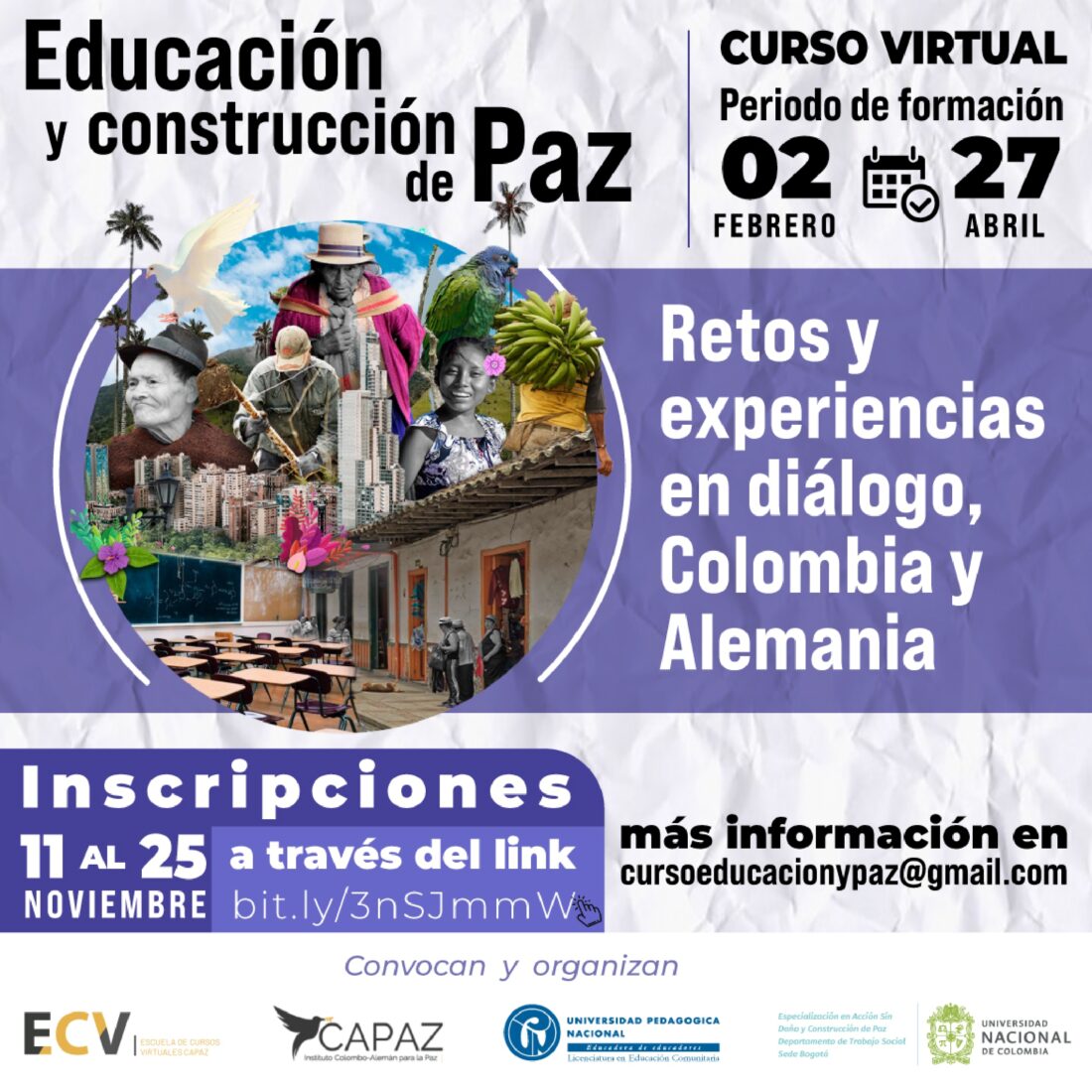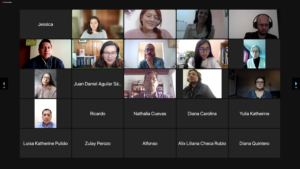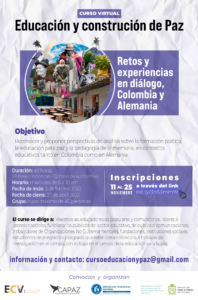
The education and peacebuilding course is already underway
 The free online course “Education and Peacebuilding: challenges and experiences in dialogue, Colombia and Germany” began on Wednesday, February 2.
The free online course “Education and Peacebuilding: challenges and experiences in dialogue, Colombia and Germany” began on Wednesday, February 2.
We are teaching this course in alliance with the Bachelor’s Degree in Community Education at Universidad Pedagógica and with the Specialisation in Do No Harm Action and Peacebuilding run by Universidad Nacional.
CAPAZ Academic Director Prof. Dr. Stefan Peters, Course Coordinator Johana Huepa, and Online Courses Coordinator, Maria Paula Rodriguez, introduced themselves and said a few words in order to explain where the idea for the course came from, how it is composed and what its goals are.
After presenting the CAPAZ Institute, its academic lines, and its trajectory in working for peace in Colombia, Prof. Peters gave a brief explanation of why this type of initiative is important. He said that “with the online courses we have learned that it is important to have the possibility to exchange experiences that we have from Germany, that you have from Colombia, and from many regions in general. This has taught us that the teaching experience is not only a transfer of knowledge but that there are also valuable opportunities for dialogue from which we can learn from each other”.
One of the issues we have to consider is what education can and cannot do.
Nowadays, there is a lot of talk about education and generally there is consensus about how important it is. But sometimes this is in tension with reality. — Prof. Dr. Stefan Peters
Dr. Peters also explained where the idea of teaching a course to train teachers who work for peacebuilding inside and outside the classroom came from. He explained that “this course originated  during a trip to Germany by Colombians, hence the second part of the title of the course, the dialogue between Colombia and Germany. And the idea behind the course is just that, a dialogue of experiences. We do not want to simply copy ideas from one country to another, because we know that this usually fails”.
during a trip to Germany by Colombians, hence the second part of the title of the course, the dialogue between Colombia and Germany. And the idea behind the course is just that, a dialogue of experiences. We do not want to simply copy ideas from one country to another, because we know that this usually fails”.
Meanwhile, Professor Johana Huepa described the history and trajectory of the Bachelor’s Degree in Community Education at Universidad Pedagógica, working on issues related to education and peacebuilding. She clarified that “the purpose of this degree is to train teachers to advise, support, and create training programmes in and for human rights, and thus contribute to the construction of community education projects in collaboration with social, indigenous, peasant and Afro-descendant organisations”. We place great emphasis on training educators and strengthening NGOs, cooperation agencies and social organisations, with a strong proposal to build peace with social justice from the field of education”.
The degree includes five lines of research
– Art, communication, and culture
– Gender, identity, and collective action
– School, community, and territory
– Education, territory, and conflict
– Memory, corporeality, and care



